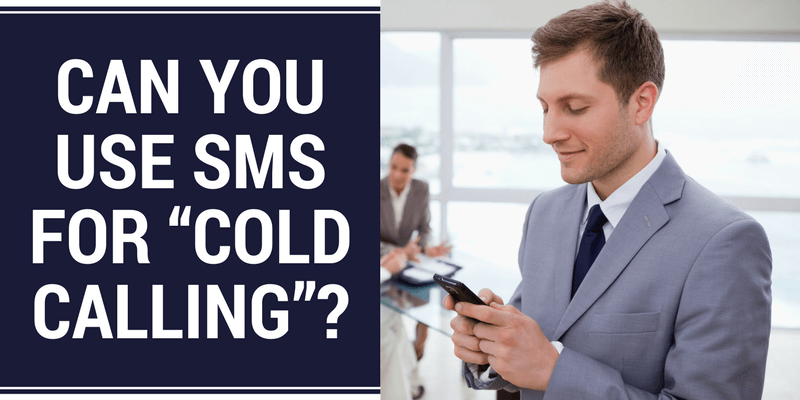Using Perfectly Timed SMS Marketing to Engage Customers

One of the greatest advantages of SMS marketing is the ability to be personal. Yes email can be personal too, or personalised, but these days most people are so familiar with email that it doesn’t have the same impact it used to have. But SMS messages delivered directly to a person’s mobile still are seen as personal. People have not yet become jaded to hearing the notification sounds and usually read the message immediately.
For marketers this is a great opportunity to engage customers based on actions. For example, here are some actions that could trigger perfectly timed SMS messages:
Retail purchase. After a customer makes a purchase is a great time to follow up with them to offer additional information on the product, discounts on accessories, ask for feedback, or just to say thank you for their business.
Major purchase. Insurance companies, banks and estate agents can reach out to their customers after a major purchase like a home with updates, first payment reminders, referral requests, and customer surveys.
Registrations. After registering for an event, class, or trip, organisations can offer up travel deals, meal discounts, add-on purchases, upgrade packages, or social media requests (to like or share their registration to get the word out).
There are any number of actions that might work for your particular business or organisation. And beyond actions, think about how you can use the information you already have on your customers. Birthdays, graduations, anniversaries, and major holidays are also possible reasons to send an SMS with a related offer or marketing message.
Some people call this kind of marketing “just-in-time”. And that term does describe the concept really well. It also isn’t new at all. In the “old” days, organisations would send a post card or make a phone call with the offer. More recently email was the main method to follow up with customers. But the immediacy and intimacy of SMS messaging give more power to this kind of SMS marketing.
Just remember you always need permission to send a message regardless of what the trigger is, as well as providing a way to opt out.
Related Articles
Double Conversion Rates with SMS Marketing
According to Internet Retailer, data conversion rates for text messages are double that of email when the link goes to a mobile responsive landing page. Even with a small list, this can result in a huge increase in sales, signups, lead generation, contest entries or whatever the goal of your campaign is.
Suggested templates for back-to-business SMS communications
6 Top Tips for Successful SMS Marketing
SMS marketing has come a long way since its introduction to mainstream marketing back in the early 2000’s. As well as dramatic changes in technology, there have also been sweeping changes to the laws governing this powerful and popular form of marketing. With its low cost, high ROI and tremendous versatility, it can now benefit almost every sector. But all this aside, the fundamental rules for successful campaigns remain largely unchanged. So just what are the big do’s and dont’s of SMS marketing? Read this article for six top tips from our team that will help you unlock the key to SMS success
Why SMS Marketing Should be Part of Your Mobile Strategy
Small screens increasingly equate to big business. 30 years ago, when mobile phones were still in their relative infancy and tended to be both expensive and as big as a rubber-bound brick, Vodafone predicted that the market would support around a million units. Fast forward to 2016 and mobile phones are a daily part of life for a majority of the global population.
Can You Use SMS for “Cold Calling”?
Does the thought of cold calling fill you with dread? You might think it would be easier to use SMS messaging instead. And though it’s legal to do so in some circumstances, you might want to rethink using it that way. Read the full blog to find out why.
One Great SMS Marketing Opt In Campaign Example
In a previous blog post I shared how getting my movie tickets delivered to me via SMS made going to the cinema with my family easier than it’s ever been. I signed up to the company’s SMS marketing list too and I want to share the process with you because it was so easy, so seamless for me as a consumer, that it makes a great example for others to follow.
5 Top Converting Power Words for SMS Marketing
Don’t Worry, SMS Messaging is Still Perfect for Marketing
Brits feel “bombarded” by too many messages from brands on mobile. Does that mean SMS marketing doesn’t work anymore? Actually no, it just means most brands are probably doing it wrong. Find out why UK consumers feel that way and how your brand should be using SMS marketing the right way.
Why SMS Marketing is Like Facebook Marketing, But Better
Facebook is a popular place. According to Statista, they had 1.44 billion active users in the first quarter of 2015. It’s no wonder then that businesses are flocking to advertise there. But big isn’t always better. SMS marketing is similar in many respects to Facebook advertising, and for some uses it is actually better. Let me explain and see if you agree.











